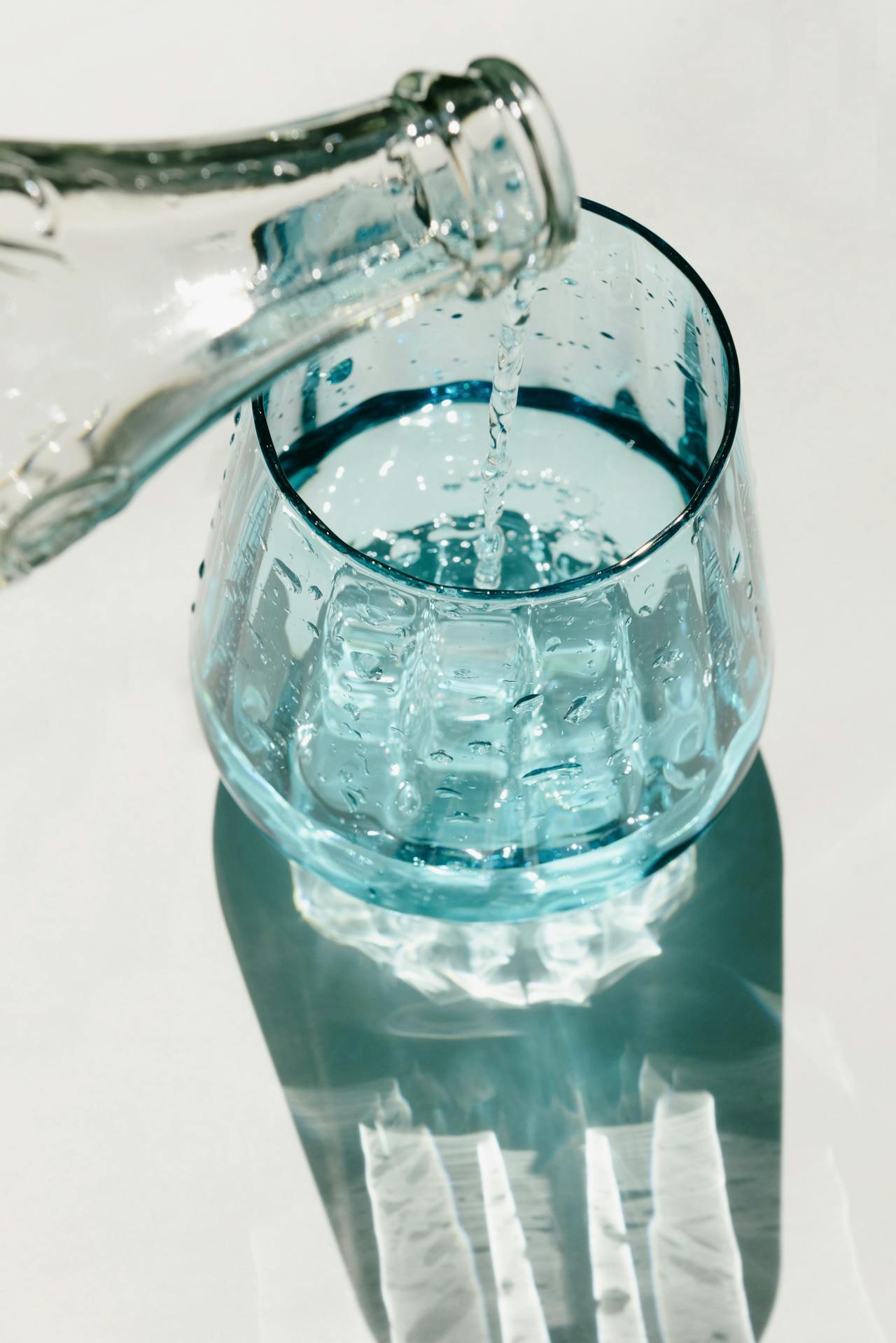
In recent years, alkaline water and filtering systems have gained significant attention as a potential elixir for better health. Marketed by celebrities, athletes, and wellness influencers, alkaline water is often touted as a miracle solution for various health issues, from improving hydration and digestion to preventing serious diseases like cancer. However, as with many health trends, it is essential to separate fact from fiction. Let’s explore in details the alkaline water, its purported benefits, and the myths surrounding its consumption, by delving into what alkaline water is, examine the scientific evidence supporting its health claims, and look at the potential risks and considerations.
What Is Alkaline Water?
The pH scale ranges from 0 to 14, with 7 being neutral. Alkaline water has a higher pH level (usually between 8 and 9.5) than regular drinking water (usually around 7). Alkaline water is naturally formed when it seeps through rocks and absorbs alkalizing minerals (calcium, potassium, and magnesium) from them, which raise its pH level.
However, most commercially available alkaline water is produced through an electrolysis. This process uses an ionizer to restructure water components, resulting in water with a higher pH. Expensive water filtering systems work on the same principle. Proponents of alkaline water claim that its higher pH can neutralize acid in the body, which contributes to various health benefits.
The Science Behind Alkaline Water
pH Balance in the Human Body
As a result of homeostasis, the human body maintains a tightly regulated pH balance and different parts of the body have different pH levels, all crucial for their specific functions. For example, the stomach has a highly acidic pH of 1.5 to 3.5, essential for digestion and killing harmful bacteria. Blood, on the other hand, maintains a slightly alkaline pH of 7.35 to 7.45. This precise balance is crucial for overall health, and the body has robust mechanisms to maintain it.
The lungs and kidneys play a key role in maintaining acid homeostasis. The former achieve this by controlling the amount of carbon dioxide in the blood, and the latter by controlling levels of the alkali (bicarbonate radical). They work together to ensure that the body's pH remains within the narrow range, vital for every cell, regardless of the pH of the water and food we consume.
Scientific Studies on Alkaline Water
Several studies have investigated the potential health benefits of alkaline water. A cross-sectional study published in PLOS ONE in 2022 examined the association between alkaline water consumption and various health markers in post-menopausal women. The study found that women who drank alkaline water had lower fasting blood glucose, better cholesterol profiles, reduced blood pressure, and improved sleep and muscle strength. However, it is essential to note that cross-sectional studies can only identify associations, not causation. The observed benefits may be due to other lifestyle factors rather than alkaline water consumption itself.
A double-blind, placebo-controlled study from 2018 found that alkaline water improved hydration status, pH balance, and exercise performance in athletes. The researchers suggested that alkaline water might help manage the lactic acid that builds up in muscles during intense workouts, potentially delaying fatigue. However, other studies have found no significant effects of alkaline water on gut bacteria or glucose regulation. Additionally, many commercially available alkaline waters have minimal alkali content, providing little to no benefit over regular tap water.
Alkaline Water vs. Regular Water
pH Level
One of the primary differences between alkaline water and regular water is their pH level. Regular tap water typically has a neutral pH of around 7, while alkaline water has a higher pH of 8 to 9.5. However, the acidic environment of the stomach quickly neutralizes any differences in pH once the water is consumed. Therefore, the pH of the water we drink has little effect on the overall pH balance of the body.
Mineral Content
Natural alkaline water, such as spring water, contains calcium, magnesium, and potassium, which can contribute to its alkaline properties. These naturally-occurring minerals are beneficial for health, regardless of their effect on pH. However, many commercially available alkaline waters achieve their higher pH through electrolysis that seldomly increases their mineral content.
Hydration Effectiveness
Some studies suggest that alkaline water may provide better hydration than regular water, particularly after exercise-induced dehydration. However, these findings have not been consistently reproduced, and the overall evidence is limited. Adequate hydration is essential for health, but the pH of the water we drink is less important than the quantity and quality of the water itself.
Safety and Cost
Regular water, whether from a clean municipal source or a quality bottle, has a well-established safety record. Moderate consumption of alkaline water is generally considered safe for healthy individuals. However, high pH water or excessive consumption of alkaline water can pose health risks, particularly for those with kidney issues.
Alkaline water is also significantly more expensive than regular water. Commercially available alkaline water can cost €3 to 5 per bottle, compared to a fraction of that for regular bottled water. Home alkaline water systems (such as water ionizers, 5- to 7-level water filtering systems) can cost anywhere from €500 to 3,000, plus maintenance and replacement filters. For those concerned about water quality, investing in a good classic water filter may be a more cost-effective and beneficial option.

Potential Health Benefits of Alkaline Water
Kidney Health
Some studies suggest that alkaline water may have protective effects against kidney stones and other kidney-related issues. A 2023 study published in Evidence-Based Complementary and Alternative Medicine found that alkaline water reduced crystal formation and kidney inflammation in mice. However, it is essential to note that mouse studies do not always translate to humans, and more research is needed to understand the potential benefits of alkaline water for kidney health in humans.
A 2024 study found that commercially available alkaline water had minimal alkali content and provided little to no benefit over tap water for preventing kidney stones. The lead author concluded that while alkaline water products have a higher pH than regular water, they lack sufficient alkali content to meaningfully affect urine pH or stone development.
Acid Reflux and Digestive Health
Alkaline water may provide symptomatic relief for individuals with acid reflux or gastroesophageal reflux disease (GERD). A study published in the Annals of Otology, Rhinology, and Laryngology found that alkaline water with a pH of 8.8 could inactivate pepsin (a digestive enzyme) that can damage the esophagus when stomach contents reflux. The researchers suggested that alkaline water might help neutralize stomach acid and provide relief for individuals with acid reflux.
However, it is essential to note that alkaline water does not address the underlying causes of acid reflux, such as a weakened lower esophageal sphincter or hiatal hernia. Chronic untreated reflux is linked to a higher risk of esophageal cancer, and it is crucial to seek medical treatment for persistent symptoms.
Athletic Performance and Recovery
Some athletes and fitness enthusiasts use alkaline water to improve performance and recovery. A 2018 small study published in PLOS ONE found that athletes who drank alkaline water had improvements in hydration status, blood pH, and anaerobic performance. The researchers suggested that alkaline water might help buffer the lactic acid that builds up during high-intensity exercise, potentially delaying fatigue.
However, the overall evidence is limited, and the results have not been consistently reproduced in other studies. Proper hydration, nutrition, and recovery strategies are essential for athletic performance, and the potential benefits of alkaline water are likely to be modest at best.
Bone Health and Aging
Some proponents of alkaline water claim that it can improve bone health and slow the aging process. The theory is that an acidic diet can lead to the release of calcium from the bones, and drinking alkaline water can help neutralize this acid and protect bone density. A small study published in the Journal of Menopausal Medicine found that women with osteoporosis who drank alkaline water showed slight improvements in bone density compared to those who did not.
However, the evidence is limited, and more research is needed to understand the potential long-term benefits of alkaline water for bone health. As for anti-aging claims, there is no solid evidence to support the idea that alkaline water can significantly slow the aging process. Staying well-hydrated with clean water is essential for overall health and can support healthy skin and organ function as we age.

Potential Risks and Considerations
While moderate consumption of alkaline water is generally considered safe for healthy individuals, there are potential risks and considerations to keep in mind.
Electrolyte Imbalances
Excessive consumption of alkaline water can potentially lead to electrolyte imbalances, particularly in individuals with kidney issues. The kidneys play a crucial role in regulating the body's pH and electrolyte balance, and consuming large amounts of alkaline water can disrupt these processes. It is essential to consult with a healthcare provider before making alkaline water a regular part of your routine, particularly if you have any underlying health conditions.
Cost and Environmental Impact
Alkaline water is significantly more expensive than regular water, and the environmental impact of commercially available alkaline water should not be overlooked. Most alkaline water comes in plastic bottles, contributing to the piling plastic waste. Investing in a good water filter and drinking clean tap water may be a more cost-effective and environmentally friendly option.
Masking Underlying Health Issues
While alkaline water may provide symptomatic relief for certain conditions, it is essential to address the underlying causes of any health issues. For example, if you have acid reflux you should seek medical treatment to address the root cause of your symptoms rather than relying solely on alkaline water for relief. Delaying medical care can lead to more serious health problems down the line.
Conclusion
Alkaline water has gained significant attention as a potential elixir for better health, with proponents claiming various benefits, from improved hydration and digestion to disease prevention. However, the scientific evidence supporting these claims is limited, and more research is needed to understand the potential benefits and risks of alkaline water consumption.
While moderate consumption of alkaline water is generally considered safe for healthy individuals, it is essential to be aware of the potential risks and considerations, particularly for those with underlying health conditions. The cost and environmental impact of commercially available alkaline water should also be taken into account.
Ultimately, staying well-hydrated with clean water is crucial for overall health, and the pH of the water we drink is less important than the quantity and quality of the water itself. As with any health trend, it is essential to approach alkaline water with a critical eye and consult with your favorite specialist before making it a regular part of your routine. By separating fact from fiction and following the evidence, we can make informed choices about our health and well-being.
